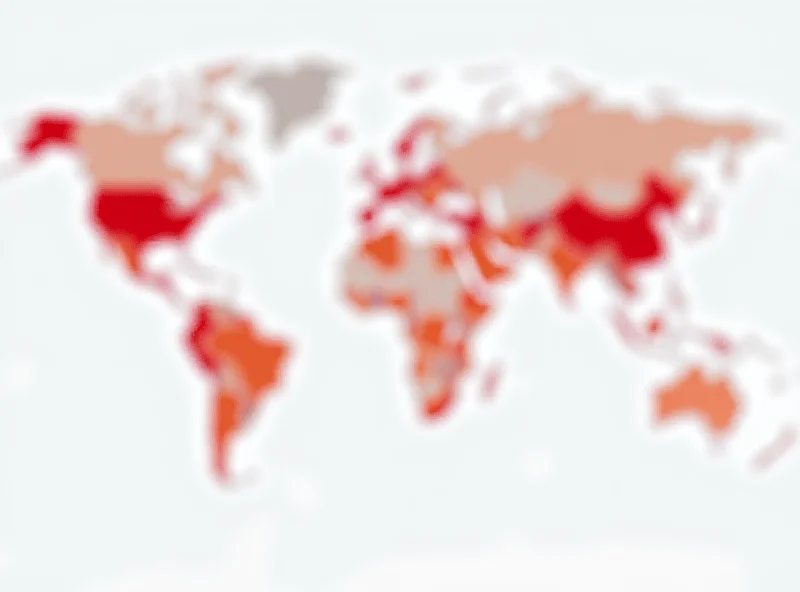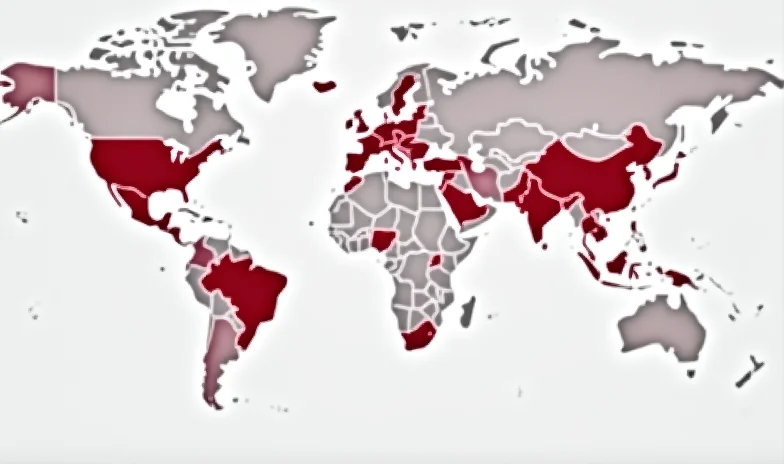The world faces a confluence of serious health challenges, demanding immediate and coordinated action. From revised pandemic death toll estimates to a projected obesity surge and the emergence of dangerous brain diseases, global health organizations are sounding the alarm.
COVID-19 Death Toll Revised Upward
The World Health Organization (WHO) has significantly revised its estimate of the COVID-19 pandemic's global death toll, now suggesting that approximately 15 million people have died. This figure, nearly triple the previously reported numbers, is based on advanced statistical methods designed to account for underreporting and limited testing capabilities in many regions.
Will this stark reassessment shock nations that have downplayed the severity of COVID-19 into taking more decisive action? The hope is that a more accurate understanding of the pandemic's true impact will galvanize governments and communities to strengthen public health measures and prioritize vaccination efforts.

Obesity Crisis Looms Large
Beyond the immediate threat of the pandemic, a new study published in *The Lancet* paints a concerning picture of the future. Researchers predict that by 2050, nearly 60% of adults and one-third of children worldwide will be overweight or obese if governments do not intervene. This projection is based on data from 204 countries and underscores the urgent need for proactive measures to combat this growing health crisis.
The WHO has consistently urged countries to get tougher on trans fats and implement policies that promote healthy eating habits and physical activity. The study serves as a stark reminder that obesity is not merely an individual concern but a global issue requiring comprehensive strategies and collective responsibility.
Brain Disease Declared a Global Threat
Adding to the list of pressing health concerns, the WHO and Encephalitis International have jointly released a technical brief addressing a dangerous brain disease identified as a "global threat." This collaborative effort aims to provide technical guidance and strategies for managing and mitigating the risks associated with this condition.

The brief highlights the importance of coordinated action within the public health community to address potential encephalitis outbreaks and improve global preparedness. This initiative underscores the need for sustained investment in research, surveillance, and treatment to effectively combat emerging health challenges.
These three urgent health issues demand immediate attention and concerted action from governments, international organizations, and individuals alike. Ignoring these warnings could have devastating consequences for global health and well-being.
"The time for complacency is over. We must act now to address these critical health threats and build a healthier future for all." - Dr. Tedros Adhanom Ghebreyesus, WHO Director-General
It's not all bad news though. Deputy UN High Commissioner for Human Rights Nada Al-Nashif recently highlighted the ongoing HIV crisis, noting that over nine million people lack treatment and that 4,000 girls and young women are infected every week, with three-quarters of new cases occurring in sub-Saharan Africa. She emphasizes the need to choose compassion and reject cruelty to address the HIV crisis.

In related news, the WHO has warned that funding cuts in the United States for tuberculosis programs put 'millions of lives' at risk. It serves as a reminder that maintaining and strengthening global health initiatives is crucial for protecting vulnerable populations and preventing future outbreaks.
